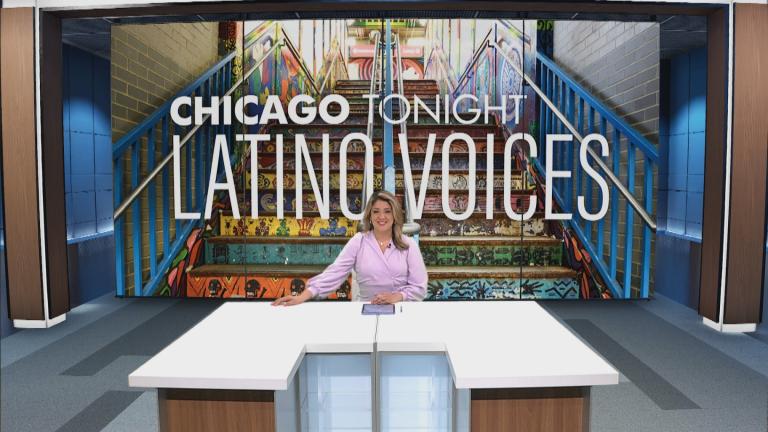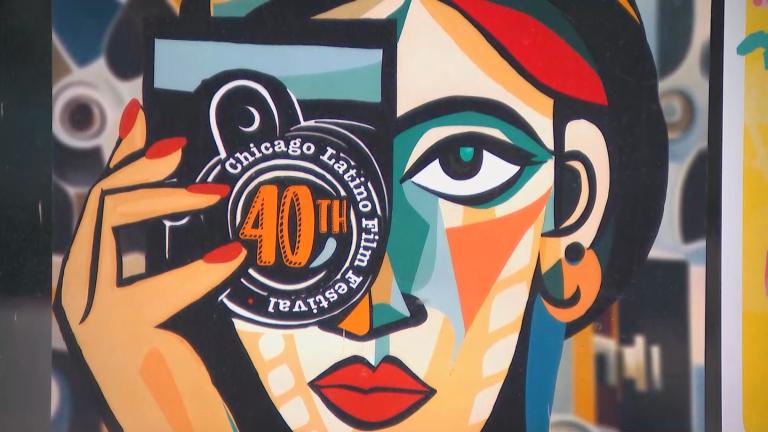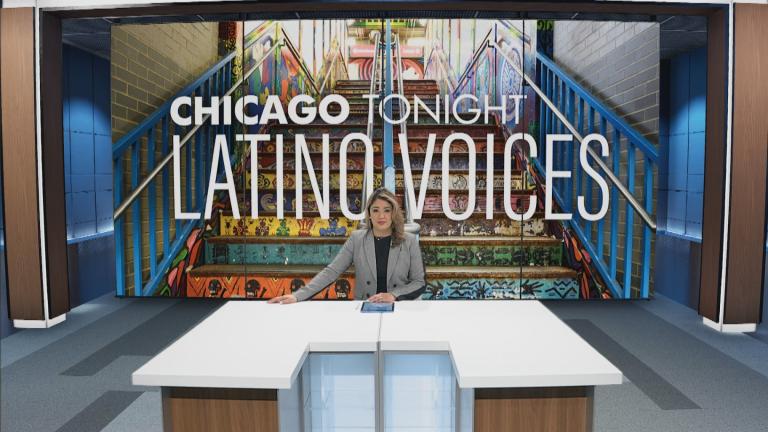Like all social institutions, the public library has had to evolve with the times. And as Latinos, especially immigrant Latinos, have increasingly settled in Chicago’s suburbs over the years, suburban libraries have developed ways to better serve their changing communities.
“People come here for passport services. People come here to get their BMI, blood sugar, cholesterol screenings,” said Round Lake Area Library head of community engagement Sandra Lopez. “People come and check out our library of things items, which includes sewing machines or telescopes or Roku sticks, wifi hotspots — all of those things that you wouldn’t necessarily think are part of a library.”
At the Round Lake Area Library, a monthly book club offers readers the opportunity to discuss literature in their own language.
“What they have told me is that they feel like this is an area, a space and a time where they can just dedicate to themselves,” said Elvira Flores, who runs the book club at Round Lake.
“We talk about the book and different point of views of everybody within the book and then just in their lives, because we always find something to relate to in real life.”
Book club member Sandra Camarena said she wasn’t much of a reader before visiting the Round Lake Area Library but joining the book club has made her an avid fan of reading.
“Sometimes there’s a barrier because of our language, so to have this opportunity in our library to come get books in Spanish is very interesting and it was one of the things that motivated me to come,” Camarena said in Spanish.
Lopez says during the early days of the pandemic, patrons increasingly turned to the library for help with problems that went far beyond the stacks.
“For example, the school district became virtual. A lot of the families in the school district didn’t have computers or didn’t know how to use computers and they also had a language barrier,” Lopez recalled. “So we had our partner over at the school district reach out to us say, ‘hey, we have this issue. Can you guys help?’ And we developed computer classes that we were able to give to parents in need.”
In west suburban Northlake, Northlake Public Library bilingual adult reference librarian Karla Alba says the staff develops its programming based on input from the community.
“That means that they are trusting us more in terms of what they ask for, and if they do need something that they don’t know whether we provide it or not, they feel like that they can come in and ask for it,” Alba said. “It’s important for people to know we’re here to help them in their language and that we can also celebrate their backgrounds at the same time.”
Part of making the library welcoming to Latinos is including programming and signage in Spanish, said Northlake Public Library youth services librarian Jackie Ceron.
“When we have new families that are coming here for the first time, I want them to know that this is their library, this is their space,” Ceron said.
Ceron draws upon her own upbringing when selecting resources for the children who come to her library.
“The other day I purchased books about El Cucuy, which is like a childhood myth that especially the Mexican community grew up listening to, which are now in story time,” said Ceron.
Northlake patrons Fiona Ayala and Noemi Guizar Miranda both say they began coming to the Northlake Public Library to find activities for their children. But now they keep coming back for themselves, too.
“I was born in Mexico, came here and just recently I took my citizenship test,” Ayala said. “The fact that they offer that program so you can study for the test. It was one of the most amazing things.”
“It’s surprising because no other place celebrates the Day of the Child and here, they celebrate it,” said Guizar Miranda in Spanish. “Mother’s Day, Day of the Dead — they do events similar to our traditions that make us feel proud of our roots.”
Both Ayala and Guizar Miranda say they often recommend the Northlake Library to friends and family, which librarians say is key to building trust in the community.
“A lot of the time we feel that patrons will come in because they’ve talked to a family member, or a friend, or just someone in the community,” said Alba.
“It just makes me feel great that there is a place where you can feel comfortable that people are still willing to help you out when you know you need the help,” Ayala said. “And it’s the library — a place that I never would have expected.”








